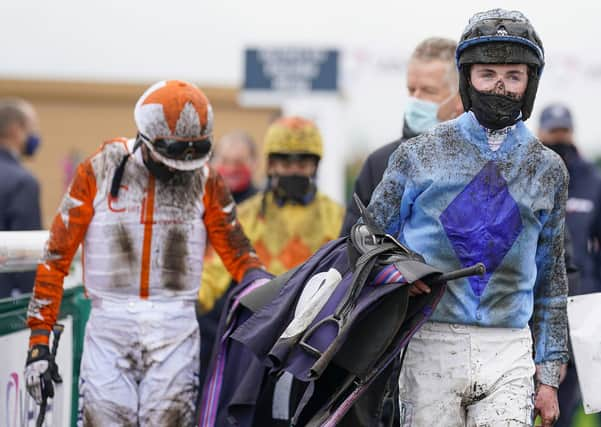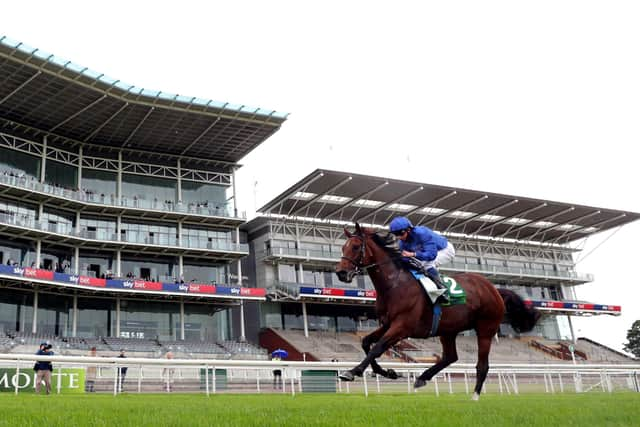Horse racing losing £115m in Yorkshire due to crowd ban


New research published today reveals that the nine tracks are projected to lose £65.4m – while the amount spent by racegoers in nearby towns is estimated to be costing the region’s economy a further £49.4m.
The study, carried out by the Centre for Regional Economic Social Research at Sheffield Hallam University on behalf of Go Racing for Yorkshire, also reveals that the number of full-time staff employed at the tracks has fallen by nearly 40 per cent from 221 to 136 FTE roles.
Advertisement
Hide AdAdvertisement
Hide AdWith the exception of the opening day of Doncaster’s St Leger meeting last month, no crowds have been permitted at any tracks since the middle of March.


The British Horseracing Authority continues to lobby the Government for additional help to support the sport amid fears that it could still be many months before crowds are allowed to return.
Using pre-Covid data from 2019, the study revealed that the horse racing industry in Yorkshire contributes £300.2m to the county’s economy through both racing and non-raceday events each year – tracks like York and Doncaster also use their spectator facilities for corporate events.
The industry supports more than 3,600 full-time equivalent jobs, over three quarters of which are in rural areas. Over 2,400 horses are trained in the county, which represents 17 per cent of all racehorses trained in Britain.
Advertisement
Hide AdAdvertisement
Hide AdJohn Sexton, chairman of Go Racing In Yorkshire, said: “A first economic impact study was commissioned in 2010 using 2009 data and we felt it was important to update those findings.
“Yorkshire serves every strata of racing life, with nine racecourses, staging some of the world’s most important races and two major training centres at Middleham and Malton. Early assessments show that Covid-19 could reduce the impact of racing on the Yorkshire economy by £114.8m, underlining that the sooner we can get back to normality the better.”
Support The Yorkshire Post and become a subscriber today. Your subscription will help us to continue to bring quality news to the people of Yorkshire. In return, you’ll see fewer ads on site, get free access to our app and receive exclusive members-only offers. Click here to subscribe.
Comment Guidelines
National World encourages reader discussion on our stories. User feedback, insights and back-and-forth exchanges add a rich layer of context to reporting. Please review our Community Guidelines before commenting.